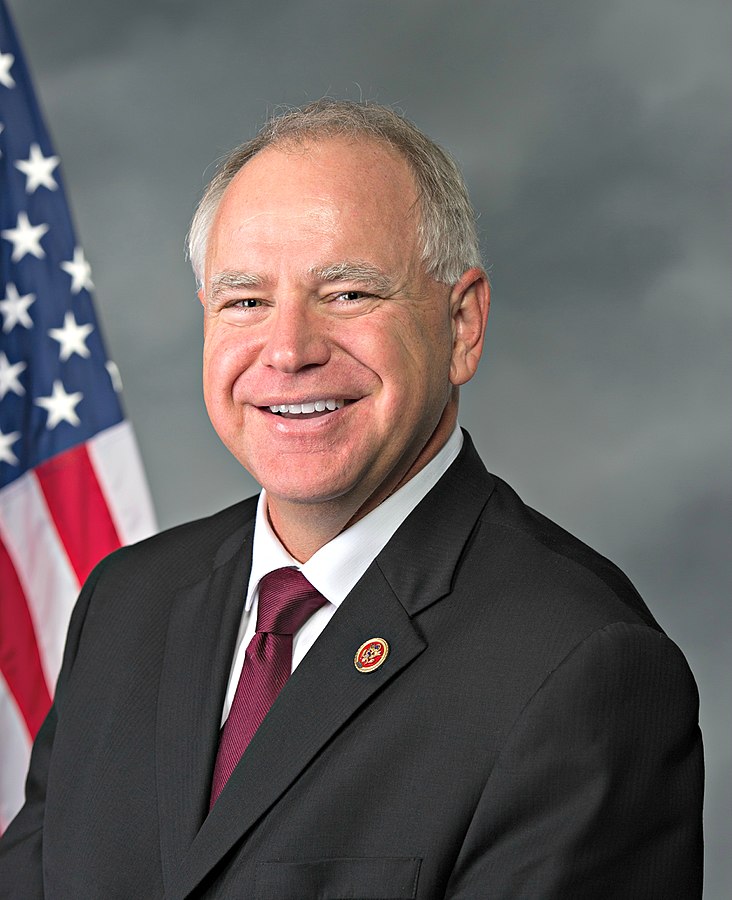
PAUL, Minn. — Former Minnesota Gov. Tim Pawlenty’s comeback bid fizzled Tuesday in the Republican primary for his old job, as voters chose County Commissioner Jeff Johnson to face Democratic Rep. Tim Walz in the governor’s race.
Walz had been considered a top contender in the three-way primary to replace outgoing Democratic Gov. Mark Dayton, despite losing his party’s nod in early June. And Johnson was a longshot, given Pawlenty’s unparalleled name recognition and fundraising from two terms as governor and a brief presidential campaign in 2012.
The stakes are high for both parties. For Democrats, the governor’s office could be their only lever of power if they don’t take the state House later this year. Republicans see a chance at seizing complete control of state government in the traditionally blue state.
Walz’s six terms in Congress and Lori Swanson’s three as attorney general made them more recognizable to voters, but it was state Rep. Erin Murphy who carried the Democratic Party’s endorsement heading into Tuesday’s primary. She staked out more liberal ground than either one and was hoping Dayton’s backing would give a boost.
Swanson, meanwhile, stuck to more moderate positions. She said she wouldn’t support legalizing recreational marijuana and would merely set up a task force to study giving driver’s licenses to immigrants living in the state illegally. Murphy and Walz both said they’d push for both policies outright.
Murphy and Walz benefited from potentially historic turnout in the Minneapolis area, where a crowded Democratic primary to replace Keith Ellison in Congress was helping draw voters. By midday, Minneapolis elections officials said they had already surpassed turnout for the last three primaries, and were nearing the record of around 51,000 of 2010.
But Swanson’s campaign was beset by late accusations that she had pressured staffers in her office to volunteer in her political campaigns. She punched back, calling one accuser a “liar” and saying she had never compelled political work. She also suffered a setback when her running mate, U.S. Rep. Rick Nolan, was accused of mishandling sexual harassment allegations against an aide in his congressional office.
Swanson conceded defeat in the race after a disappointing showing, declaring “the people have spoken” after she trailed in early returns.
Swanson scrapped her plans for a fourth term as attorney general and launched a last-minute bid for governor. As one of her party’s top vote-getters after three terms as the state’s top attorney, she had been considered a top contender.
Their primary had turned ugly in its final days. Swanson, who entered the race at the last minute and then spent most of her two-month campaign on advertisements rather than public appearances, launched a late attack ad on Walz for missing more than 60 per cent of congressional votes in 2018.
Near the University of Minnesota, retired businessman and self-described independent Thomas Kelley was backing Walz. Kelley, 76, cited Walz’s experiment.
“I like the fact that he came out for transportation improvements and even said he’d be willing to raise the gas tax, which I think not many politicians have the guts to say,” Kelley said.
In the Republican matchup, Pawlenty had been the heavy favourite to win the GOP primary, with a massive fundraising advantage and a much higher profile than Johnson. Johnson had the party’s support but faced a constant ad barrage from Pawlenty and also was saddled with his loss to Dayton just four years earlier.
Pawlenty and Johnson ended their primary campaign much the way it began — with Johnson touting his support among GOP party activists, Pawlenty calling Johnson unelectable statewide after his 2014 loss to Dayton and the pair squabbling over who insulted President Donald Trump worse ahead of the 2016 presidential election.
Pawlenty’s critique that Trump was “unhinged and unfit for the presidency” just weeks before Election Day was a constant on the campaign trail, with Johnson gleefully reminding voters of his opponent’s remarks. It was part of why Johnson tried to brand Pawlenty as part of the “status quo,” positioning himself as the true conservative as compared to Pawlenty, who headed to Washington, D.C., after leaving office in 2011 to lobby for some of the nation’s largest banks.
Russel Carlson, 72, of suburban Plymouth, voted for Johnson. Carlson, retired after serving as a chief financial officer, said it didn’t bother him that Johnson lost four years ago. He said he saw him as the more conservative choice and the stronger Trump backer.
“Tim Pawlenty, I think, has had his chance,” Carlson said. “I believe in substance over style.”